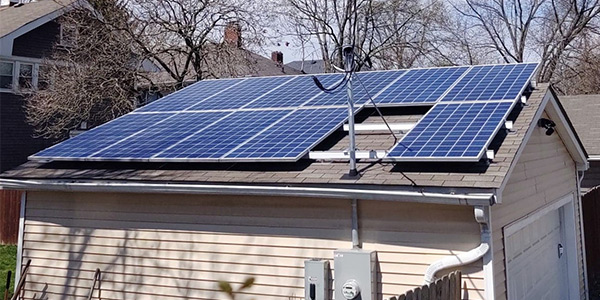MISO is considering how to restrict generation developers’ ability to change the fuel type of proposed projects in the interconnection queue.
The move comes after a recent FERC order exposed the RTO’s lack of protection against switching fuel sources for projects in the queue’s definitive planning phase (DPP).
Ryan Westphal, manager of probabilistic resource studies, said MISO has concerns that allowing DPP fuel-type changes could delay studies and “create gaming opportunities.”
“It just essentially encourages the submission of premature and speculative projects,” he told stakeholders during a Interconnection Process Working Group teleconference Tuesday.
The issue stems from a Leeward Renewable Energy Development wind project currently in the DPP. The developer wants to convert the project to solar energy while also retaining its position in the queue.
FERC last week said that MISO’s Tariff was silent on whether a generation project can switch from wind to solar while in the interconnection queue. The commission also said that there was no requirement in Order 845 that requires grid operators to study projects that opt to switch fuel types. (See FERC: No MISO Rules on Mid-queue Fuel Change Studies.)
Westphal said MISO is evaluating how fuel changes fit into the Tariff’s permissible technological advancements.
“Unstructured submission of multiple fuel-change requests during a single queue cycle creates cost and timing risks that may not be obvious from evaluating individual requests in the abstract,” he said, adding that the accumulation of several fuel-type requests could seriously alter a queue cycle.
A fuel-type change can also alter dispatch assumptions, throw off site control requirements and affect system studies coordination with other RTOs, Westphal continued. Staff are seeking a standardized method to handle fuel-type changes that keeps the queue on time, he said. MISO is already contending with a record queue of 719 projects, totaling 108 GW of capacity.
“If we have to evaluate these on an ad hoc basis, then it’s kind of a queue-within-a-queue,” Westphal said. Instead, the grid operator is considering making a new filing with FERC to explicitly disallow fuel-type changes, among other options.
Otherwise, Westphal said MISO could introduce a “check box” on interconnection requests where a customer could preserve its option to switch fuel types. The uncertainty would have staff studying the interconnection request at 100% dispatch of the most conservative fuel type until the customer can confirm its fuel type, probably at the queue’s first decision point.
“If we’re going to do this — allow this — then the decision point seems like a good place to start,” Westphal said. MISO could go a step further and study all interconnection requests at a 100% output, but he said that could result in unnecessary network upgrades.
Multiple stakeholders said studying all queue customers’ projects at full output would be too detrimental to project costs and would be a nonstarter.
Westphal said MISO could simply require customers to nominate fuel type at a fixed point, “before we get too far in the process.”
“The question was, ‘Could we allow a fuel-type change before a kickoff meeting?’ And the answer was ‘yes,’” Westphal said. “We’re asking about other points too. When can we allow a fuel-type change and disrupt the process as little as possible?”
EDF Renewables’ Arash Ghodsian said a deadline prior to DPP kickoff made the most sense.
“I think that a fuel-type change is tremendously disruptive to the DPP process and it affects other interconnection customers,” WEC Energy Group’s Chris Plante said. “Maybe it shouldn’t be allowed.” He asked whether there are other customers like Leeward seeking to change fuel sources on existing project proposals.
“We’ve gotten several customers asking how to do this,” Westphal confirmed.
He asked that stakeholders submit more written opinions on fuel-type changes by Oct. 2. He expects MISO and stakeholders to work on a solution through early 2021.





